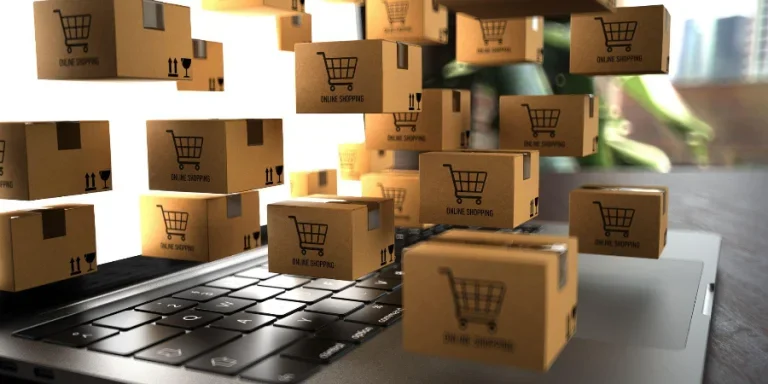In the rapidly evolving e-commerce landscape, understanding the role and intricacies of suppliers has never been more crucial. Suppliers are the backbone of product-based businesses, providing the necessary goods for companies to sell. However, their importance extends beyond mere provision; they influence quality, pricing, availability, and even the sustainability of the business itself. This article aims to demystify suppliers, offering insights into their critical role in e-commerce.
Table of Contents:
– What is a supplier?
– The importance of suppliers in e-commerce
– How to find the right supplier
– Building strong relationships with suppliers
– Future trends in supplier management
What is a supplier?

Suppliers, in the broadest sense, are entities that provide goods or services to another organization, playing a pivotal role in the supply chain. They can range from manufacturers and wholesalers to independent artisans. Their primary function is to ensure that businesses have access to the products they need to operate and meet customer demand.
The relationship between a business and its suppliers is foundational to its success. A reliable supplier not only delivers quality goods on time but also offers competitive pricing and flexible terms. In contrast, working with an unreliable supplier can lead to stock shortages, quality issues, and ultimately, dissatisfied customers.
Understanding the different types of suppliers is essential for businesses. They vary based on the products they offer, their location, and their scale of operations. Some specialize in bulk goods, while others focus on niche markets. Choosing the right type of supplier depends on the business’s specific needs and goals.
The importance of suppliers in e-commerce

In the digital age, e-commerce businesses rely heavily on suppliers to fulfill customer orders efficiently and effectively. A strong supplier relationship can lead to smoother operations, better inventory management, and enhanced product offerings.
Suppliers also play a crucial role in an e-commerce business’s ability to scale. As demand increases, businesses must ensure their suppliers can accommodate growth without compromising on quality or delivery times. This scalability is vital for maintaining customer satisfaction and competitive edge.
Furthermore, suppliers can be a source of innovation for e-commerce businesses. They may offer new products, materials, or technologies that can help a business differentiate itself in the market. Staying attuned to suppliers’ offerings can open up new opportunities for growth and development.
How to find the right supplier

Finding the right supplier is a critical step for any e-commerce business. It involves thorough research, vetting, and negotiation to ensure a mutually beneficial partnership. The first step is to identify potential suppliers that align with the business’s needs, values, and goals.
Once a list of potential suppliers is compiled, the next step is to evaluate them based on criteria such as product quality, pricing, reliability, and communication. This evaluation can involve requesting samples, checking references, and visiting facilities if possible.
Negotiating terms is the final step in securing a supplier. This includes discussing pricing, payment terms, delivery schedules, and any other relevant details. Clear communication and mutual understanding are key to establishing a strong supplier relationship.
Building strong relationships with suppliers

A strong relationship with suppliers is fundamental to an e-commerce business’s success. It requires regular communication, mutual respect, and a commitment to resolving any issues that arise. Building such relationships can lead to better terms, priority service, and access to exclusive products or innovations.
Transparency is crucial in supplier relationships. Sharing business goals, expectations, and feedback can help suppliers better understand and meet a business’s needs. Similarly, being open to suppliers’ suggestions and concerns can lead to improvements in product offerings and operations.
Regularly reviewing and assessing the supplier relationship is also important. This ensures that both parties are satisfied and that the partnership continues to be beneficial. It can also identify areas for improvement or growth.
Future trends in supplier management

The future of supplier management in e-commerce is likely to be shaped by technology, sustainability, and globalization. Technological advancements, such as blockchain and AI, are expected to improve transparency, efficiency, and communication in supplier relationships.
Sustainability is becoming increasingly important in supplier management. Consumers are more conscious of environmental and ethical issues, pushing e-commerce businesses to prioritize sustainable and responsible suppliers.
Globalization is another trend affecting supplier management. As e-commerce businesses expand their reach, working with suppliers from different parts of the world becomes more common. This global network of suppliers offers opportunities for diversity and innovation but also presents challenges in coordination and quality control.
Conclusion
Suppliers are a vital component of the e-commerce ecosystem, influencing everything from product availability to quality and pricing. Establishing and maintaining strong relationships with the right suppliers can significantly impact a business’s success. As the e-commerce landscape continues to evolve, staying informed about trends and best practices in supplier management will be crucial for businesses looking to thrive.





 Afrikaans
Afrikaans አማርኛ
አማርኛ العربية
العربية বাংলা
বাংলা Nederlands
Nederlands English
English Français
Français Deutsch
Deutsch हिन्दी
हिन्दी Bahasa Indonesia
Bahasa Indonesia Italiano
Italiano 日本語
日本語 한국어
한국어 Bahasa Melayu
Bahasa Melayu മലയാളം
മലയാളം پښتو
پښتو فارسی
فارسی Polski
Polski Português
Português Русский
Русский Español
Español Kiswahili
Kiswahili ไทย
ไทย Türkçe
Türkçe اردو
اردو Tiếng Việt
Tiếng Việt isiXhosa
isiXhosa Zulu
Zulu